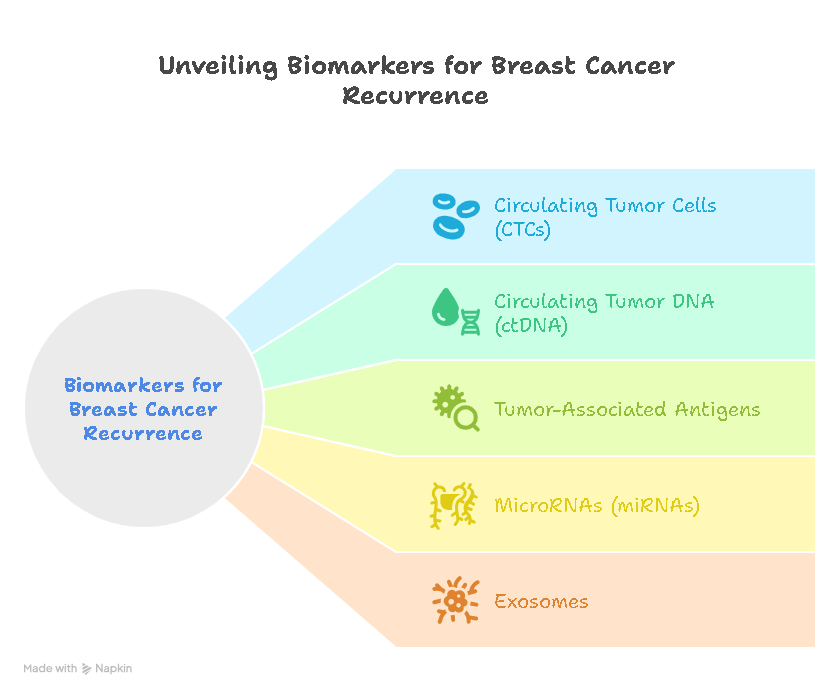Genetic testing has emerged as a breakthrough in understanding the risk factors associated with various diseases, including breast cancer. Among the most crucial genetic mutations linked to breast cancer are BRCA1 and BRCA2. This article provides an in-depth exploration of genetic testing for breast cancer, focusing on the BRCA1 and BRCA2 mutations, their implications, testing methodologies, and the empowerment that comes from knowledge.

- Introduction
- Genetic Testing: A Beacon of Insight
- The BRCA1 and BRCA2 Mutations: Unraveling the Code
- Importance of Genetic Testing
- The Genetic Testing Process
- The Empowerment of Knowledge
- Debunking Myths Surrounding Genetic Testing
- FAQs about Genetic Testing for Breast Cancer
- Conclusion
Genetic Testing: A Beacon of Insight
In this comprehensive article on Genetic Testing for Breast Cancer, learn about BRCA1 and BRCA2 mutations, their significance, testing procedures, and more. Discover how genetic testing can empower you to make informed decisions regarding your health.
Genetic testing involves analyzing an individual’s DNA to identify any alterations or mutations that might be indicative of an increased risk of certain diseases. In the context of breast cancer, genetic testing has proven to be a powerful tool for risk assessment and early detection. The discovery of the BRCA1 and BRCA2 genes has revolutionized our understanding of hereditary breast cancer and has paved the way for targeted prevention strategies.
The BRCA1 and BRCA2 Mutations: Unraveling the Code
The BRCA1 and BRCA2 genes are tumor suppressor genes responsible for maintaining the integrity of the DNA and preventing uncontrolled cell growth. Mutations in these genes can significantly elevate the risk of developing breast and ovarian cancers. These mutations are inherited in an autosomal dominant manner, meaning that an individual with a mutated copy of either BRCA1 or BRCA2 has a higher likelihood of developing cancer, so genetic testing for breast cancer helps in the diagnostic procedure.
LSI Keyword: BRCA1 and BRCA2 Genetic Mutations
Importance of Genetic Testing
Genetic testing for BRCA1 and BRCA2 mutations offers individuals a glimpse into their genetic predisposition to breast cancer. This knowledge empowers individuals to take proactive steps in managing their health. Understanding one’s genetic makeup can guide decisions about screenings, preventive measures, and treatment options.
The Genetic Testing Process
Genetic testing for BRCA1 and BRCA2 mutations involves a straightforward process:genetic testing for breast cancer includes
- Counseling: Before undergoing genetic testing, individuals receive genetic counseling. This step helps them comprehend the implications of the test and make informed choices based on the results.
- Sample Collection: A sample of DNA, typically obtained through a blood sample or saliva, is collected for analysis.
- Laboratory Analysis: The collected sample undergoes comprehensive laboratory analysis to identify any mutations in the BRCA1 and BRCA2 genes.
- Interpretation and Counseling: Once the results are available, a genetic counselor explains the findings and discusses potential risk factors and management options.
The Empowerment of Knowledge
Knowledge of BRCA1 and BRCA2 mutations can empower individuals in several ways:
- Informed Decisions: Armed with information, individuals can make educated decisions about their health, such as pursuing preventive surgeries or opting for more frequent screenings.
- Family Planning: Understanding the genetic risk allows individuals to make informed choices about family planning and explore options like preimplantation genetic testing.
- Clinical Trials: Those at higher risk may choose to participate in clinical trials aimed at developing targeted therapies or prevention strategies.
Debunking Myths Surrounding Genetic Testing
Myth: Genetic testing is only necessary for those with a family history of breast cancer. Reality: While a family history increases the risk, anyone concerned about their breast cancer risk can benefit from genetic testing.
Myth: A positive result guarantees the development of breast cancer. Reality: A positive result indicates an increased risk, not certainty. Preventive measures and vigilant screenings can significantly reduce the risk.
Myth: Genetic testing is an invasion of privacy. Reality: Genetic testing is confidential, and individuals have control over who accesses their genetic information.
FAQs about Genetic Testing for Breast Cancer
Q: How much does genetic testing cost?
A: The cost varies, but insurance often covers testing for individuals with a family history of breast cancer.
Q: Can genetic testing determine my overall cancer risk?
A: While it focuses on breast cancer risk, it can indirectly provide insights into other cancer risks.
Q: Is genetic testing recommended for all women?
A: It’s particularly beneficial for those with a family history, but anyone concerned about their risk can consider testing.
Q: What if I test positive for BRCA mutations?
A: Consult a healthcare professional who specializes in cancer genetics to discuss options for risk management.
Q: Are the results of genetic testing always accurate?
A: While the tests are highly accurate, it’s essential to consult with a genetic counselor for proper interpretation.
Q: Can men undergo genetic testing for BRCA mutations?
A: Yes, BRCA mutations also increase the risk of breast and prostate cancers in men.
Conclusion: Knowledge is Empowerment
Genetic testing for breast cancer, particularly the BRCA1 and BRCA2 mutations, is a remarkable stride in personalized medicine. It equips individuals with the insights needed to make informed decisions about their health. By unraveling the genetic code, we are entering an era of targeted prevention and proactive healthcare. Embracing genetic testing is not just a step forward—it’s a leap toward a future where breast cancer can be detected and managed with unprecedented precision.












Leave a Reply